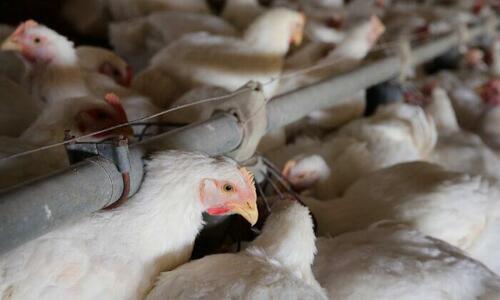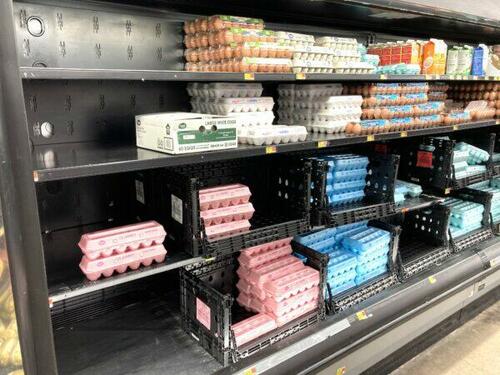Concerns Over Egg Shortages Grow
By Allan Stein of The Epoch Times
Concerns over potential shortages of eggs nationwide are growing due to inflation and supply chain issues made worse by avian flu.
“Like many sectors of the economy, egg farming is impacted by inflation and experiencing some limited supply chain challenges due to a variety of factors,” the American Egg Board (AEB) said in a May 24 statement in response to an Epoch Times inquiry.

The AEB was created by an act of Congress in 1976 at the request of egg farmers as a way to pool resources for national-level marketing.
Regarding avian flu, the AEB said, “It is important to note that less than 5 percent of commercial layer flocks have been impacted by avian influenza and those farms affected are working with state and federal agency partners to safely resume operations.
“Our farmers continue to work diligently to ensure that Americans nationwide have consistent access to their favorite protein: the incredible egg.”
At Frye’s Market in Cottonwood, Arizona, for example, the shelves appeared about half full on May 20.

This week, a dozen Happy Egg free-range grade-A large brown eggs sold for $4.99. The price of Kroger grade A and AA large eggs was $4.39.
The situation wasn’t much different at Cottonwood’s Safeway on May 23, where a stock clerk attributed empty shelves to the increasing demand for eggs and lagging deliveries.
According to the USDA’s April 29 monthly Cage-Free Shell Egg Report, the average price range for a carton of eggs was between $1.15 and $2.79.
The report based weekly egg production on monthly flock size estimates, which totaled 18.1 million in April at an estimated lay rate of 84.5 percent for 30-dozen cases of organic eggs.
Non-organic egg layers total 90.5 million birds at a weekly production rate of nearly 1.5 million cases of 30-dozen eggs.
More than 36 million chickens and turkeys have been euthanized since highly infectious avian flu was first detected in the United States in January.
On April 20, the egg board said America’s farmers have been working “around the clock” to keep their products affordable and grocery stores stocked.

“It’s important to know that farmers don’t usually get to choose the price of their eggs. Eggs are priced on the commodity market, like corn and wheat. Temporary increases in egg prices reflect many factors,” the AEB said.
“Like many sectors of the economy, egg farming is being impacted by inflation and experiencing supply chain challenges related to increases in cost and availability of feed and grain, labor and transportation.
“Recent cases of bird flu have created additional strains on supply in limited situations,” the organization added.
https://ift.tt/XVxfOjs
from ZeroHedge News https://ift.tt/XVxfOjs
via IFTTT




0 comments
Post a Comment